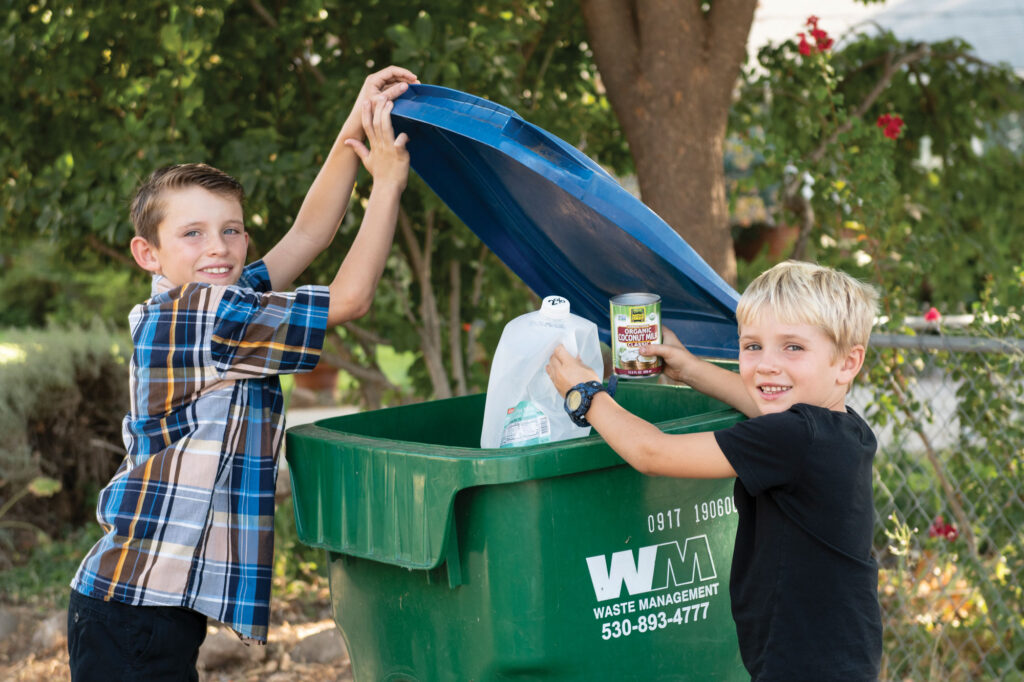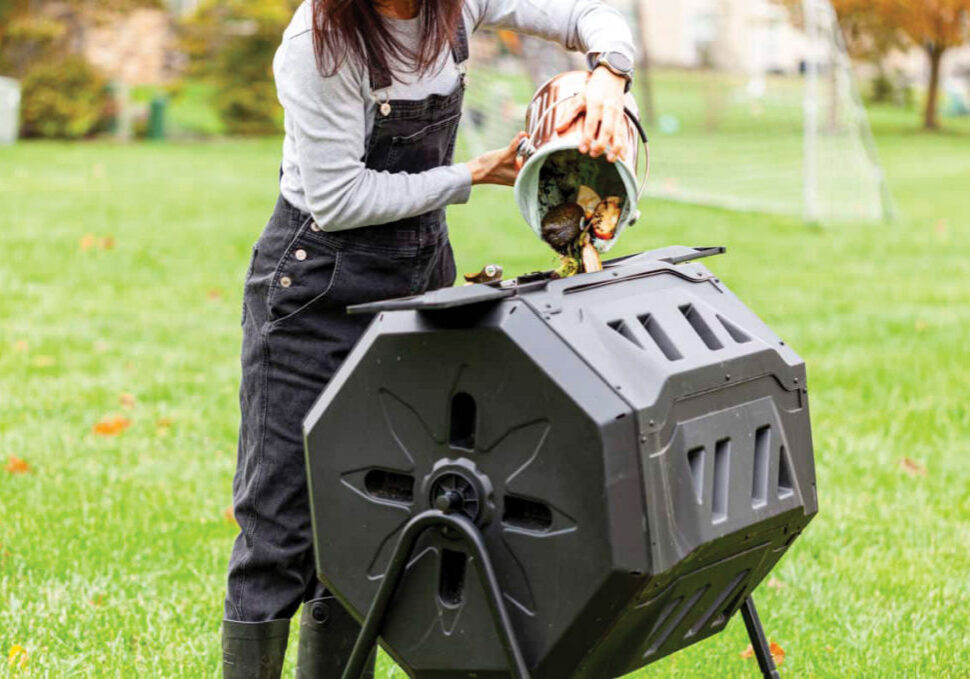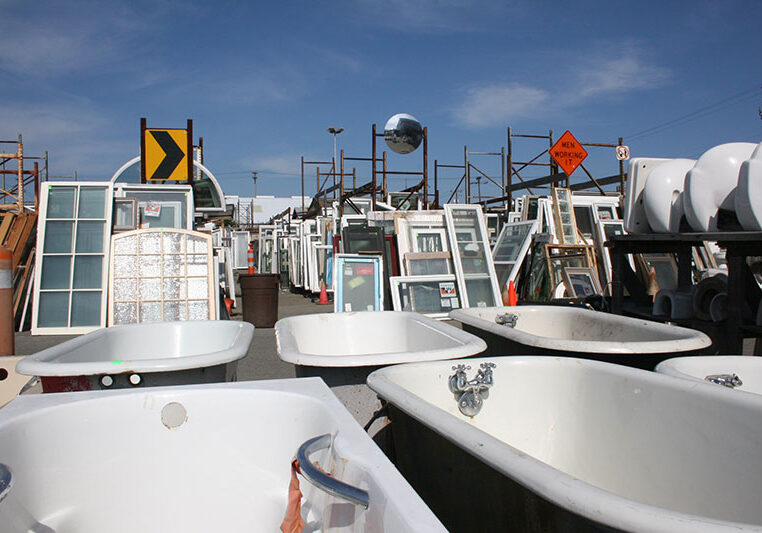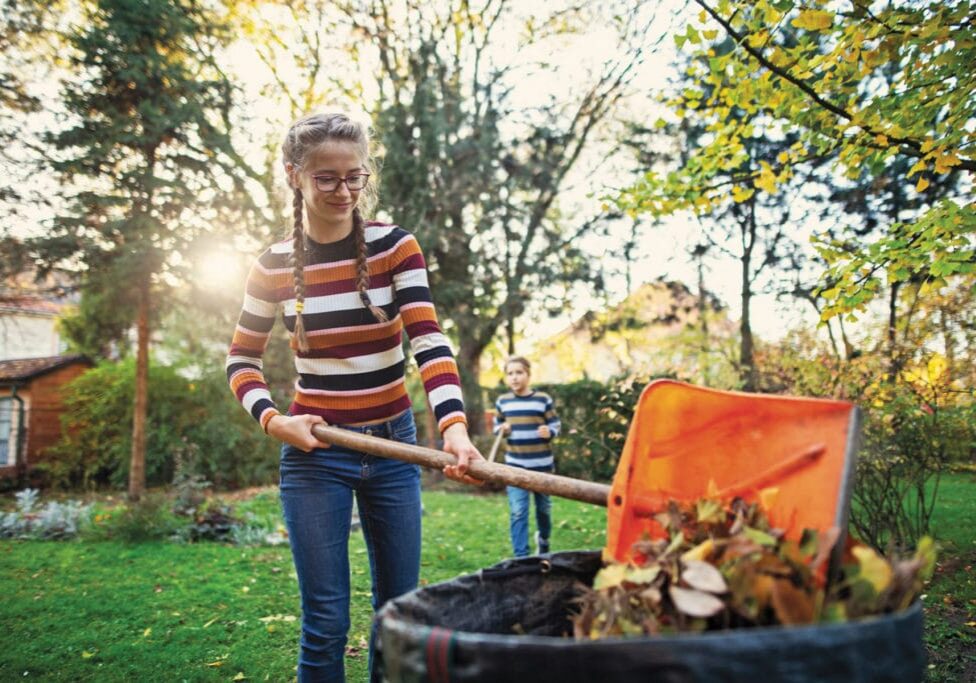We are all familiar with images of sea life strangling in discarded fishing nets, plastic bobbing on ocean waves, small mammals with their heads caught in disposed but not biodegradable food containers, landfills overflowing with the refuse of an acquisition-based society, households on the other side of the world living on hills of clothing thrown away on this side of the world, human beings going hungry while almost half of the food purchased in the United States is wasted.
How can our families, our children and our communities help?
If we care to be concerned, are resourceful and want to guide our children or students to being good stewards of the land we can make a difference by teaching and practicing the Rs — Reduce, Reuse, Recycle — in our homes and with our lifestyle choices. Recycling the paper, plastic, and metal we use is a good way to help the environment, but reusing is better, and reducing our consumption and the size of our carbon footprint is the best for our planet, and our own lives.
Conscious consumerism can help you reduce the number of products your family purchases. Spend time researching brands, focusing on packaging, material and a company’s promise to the environment. Educate yourself about how you eat and how you nourish your family with the food items you stock. Run your home with an intent toward eco-consciousness. Make simple changes to the way you maintain your yard and garden by integrating food and plant waste into your outside chores and significantly reducing the compostable material that goes into our landfills.
Today, becoming environmentally responsible requires commitment and education. We cannot turn away from the uncomfortable images or shield our children for too long from the sadness that wasteful living has wrought. We can learn and model the R lessons, parent to child, doing our part to ensure that environmental consciousness is embraced in our homes. It’s a pledge that will make a difference today and tomorrow, in your family and in our world.


Weston, age 8; and Miles, age 6 help their family with recycling. Photo by Amber Thompson.
Focus on one area of your home and lifestyle at a time
Reducing, reusing, and recycling takes effort and planning and education. It also doesn’t happen overnight, even with the most passionate dedication.
The bathroom
Get a low-flow toilet. Older models use up to seven gallons per flush; low flow requires just under two gallons. If you can’t replace an older toilet, fill a large plastic jug with water and put it in the tank to reduce the water usage. Don’t use the toilet to dispose of something that can be thrown away. Research cloth diapers and cloth menstrual products to see if they are a better choice. Purchase natural cleaning products or use a vinegar-water combination instead of chemicals.
The laundry room
Use environmentally-friendly detergents. Buy a bulk detergent and omit single-use plastic containers. String a line to air dry your clothes and while you’re handling your family’s clothing take time to think about your wardrobes in general. Recycle old clothes, donate rather than dispose of and consider shopping at recycled clothing outlets.
The kitchen
Compost food scraps. Take a critical look at the food you buy and then calculate the food that goes to waste and adjust your shopping lists to reflect this. Shop at your local farmers market or buy in bulk. Prepackaged foods are less healthy and come with an excess of packaging material.
The office
Think before you hit the print button. Print on both sides. Purchase recycled paper. Go paperless on your bills. Use a shredder to reuse your paper as packaging material or compost.
The yard
Practice grasscycling if you have a lawn. (calrecycle.ca.gov/organics/grasscycling/) Composting should be a daily part of your yard maintenance. Use food waste but also yard clippings. Children can become backyard worm farmers if you set up your own vermicomposting bin. You can build a worm bin with your family following the simple instructions at nrdc.tumblr.com/post/118984184239/how-to-build-a-worm-bin. Then make an educational trip to The Worm Farm in Butte County for red wrigglers. (wormfarm.net)
The garage
Donate a car that isn’t being utilized. (buttehumane.org/donate-your-vehicle/) Walk, bike, use public transportation. It takes effort, but car pooling brings new friends while reducing the single driver commute.
Grocery shopping and eating out
Learn about slow food. Plant a veg garden. Rethink fast food purchases, even your smoothies. Takeout food containers are the number one item collected in beach cleanups. Patronize smoothie shops that allow you to bring in your own reusable cup and straw. Purchase reusable cloth bags and make it a habit to use them. Young children would love to be in charge of bag reminding. We should be proud that California was the first state to pass legislation about single-use plastic bags. (surfrider.org/)
Posted in: Recycling
Comment Policy: All viewpoints are welcome, but comments should remain relevant. Personal attacks, profanity, and aggressive behavior are not allowed. No spam, advertising, or promoting of products/services. Please, only use your real name and limit the amount of links submitted in your comment.
You Might Also Like...

Using The 5Rs To Help Clean Up The Planet
If you diligently separate your recyclables, take them to the curb or recycling center and still feel like you could be doing more to be a good “eco warrior,” you’re […]


